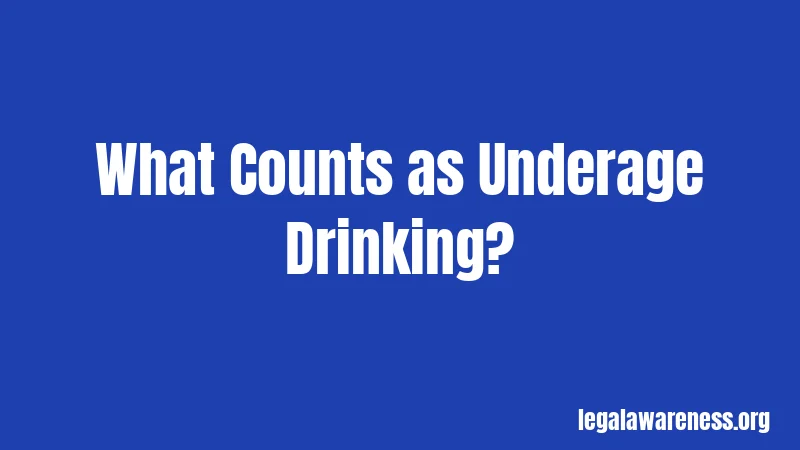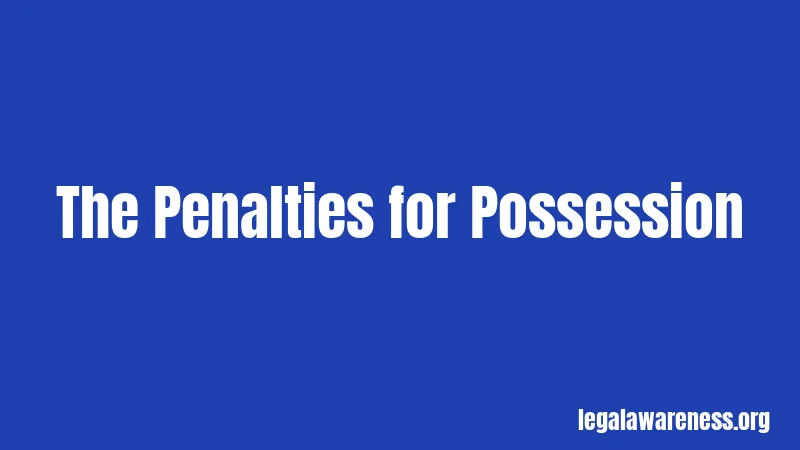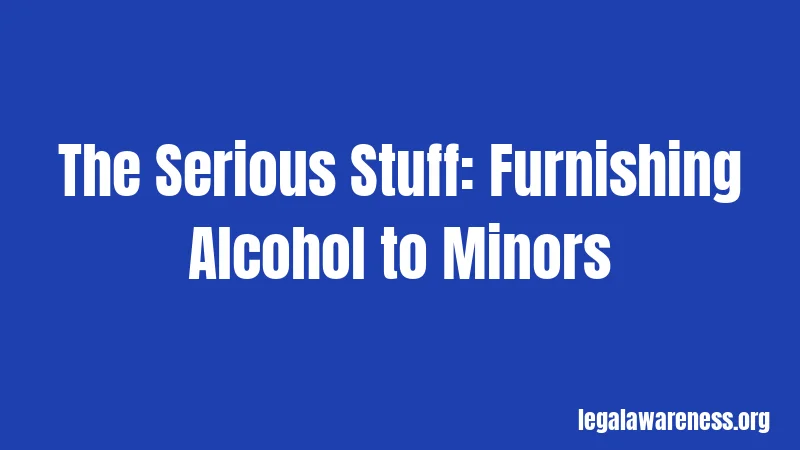Minor Drinking Laws in New York (2026): What Gets You in Trouble
Most teenagers have no idea how serious New York’s drinking laws really are. Honestly, a lot of adults don’t either. But here’s the thing: underage drinking in New York comes with real consequences. We’re talking fines, criminal records, and license suspensions. If you’re young or have kids, you need to understand these rules.
This guide breaks down New York’s minor drinking laws in plain language. No legal jargon. No confusion. Just the facts you need to stay safe and out of trouble.
What Counts as Underage Drinking?

In New York, you’re a minor if you’re under 21 years old. That’s the legal drinking age everywhere in America. But New York goes further than just saying “don’t drink.” The state has specific laws about what minors can’t do with alcohol.
The basics are simple. You can’t buy alcohol if you’re under 21. You can’t drink it either. You can’t even be in possession of it. Sound straightforward? It actually gets more complicated, but we’ll break it down.
What Does “Possession” Actually Mean?
Wondering if this applies to you? Let’s clarify. Possession means you have alcohol on you or have access to it. This includes in your backpack, locker, car, or at a party. You don’t even have to be drinking it. Just having it counts.
Here’s where it gets tricky. You could be charged with possession if you’re holding a beer cup. You could also be charged if you’re at a party where there’s alcohol nearby, even if you’re not drinking. The police have the power to charge you based on the circumstances. Right?
The good news is the law does recognize some situations. You’re not breaking the law if your parent or guardian gives you alcohol at home. But there are limits. We’ll talk about those later.
The Penalties for Possession

Let’s get real about what happens if you’re caught. In New York, underage possession of alcohol is not a felony. It’s a violation. But violations still come with consequences.
Here’s what you could face. A first offense brings a fine up to $50. You might get community service too. The court can order you to do community service for up to 10 days. You’re also looking at up to two years of probation. Pretty serious for a first mistake.
A second offense within five years is tougher. The fine jumps to $100. You could face up to 20 days of community service. The probation period extends to two years as well. Wait, it gets better. You might lose your driver’s license for up to one year. That’s a big deal if you depend on driving.
A third offense or more within five years? Now you’re really in trouble. The fines can reach up to $200. Community service can go up to 60 days. And your license could be suspended for a full year. This is why catching yourself early matters.
Buying or Trying to Buy Alcohol
Okay, pause. Read this carefully. Trying to buy alcohol when you’re underage is illegal. Even attempting to purchase it is a crime.
If you try to buy alcohol under 21, you face a violation. The penalties mirror possession charges. You could face fines up to $50 on a first offense. Community service and probation follow. Repeated offenses mean higher fines and longer suspensions.
Here’s what surprises most people: the store clerk can get in trouble too. But that’s not your problem right now. Your problem is understanding that this choice has consequences. The penalties exist for a reason.
The Serious Stuff: Furnishing Alcohol to Minors

Now, here’s where things get serious. If you give alcohol to someone underage, you’ve crossed into criminal territory. Adults who do this face felony charges. Even teenagers can face serious consequences for furnishing alcohol to other minors.
Think of it like this. You’re not just breaking a rule. You’re potentially putting someone else in danger. You’re also breaking the law in a way that shows intent to help someone break the law. The courts take this very seriously.
Furnishing alcohol to a minor is a misdemeanor in New York. That’s worse than a violation. A conviction can mean jail time. You could spend up to 30 days in jail on a first offense. You might also face fines up to $250. A second or subsequent offense brings 60 days in jail and fines up to $500.
Wait, there’s more. Adults face even harsher penalties. An adult furnishing alcohol to a minor can face felony charges. Jail time extends to one year. Fines reach $1,000 or more. If the minor is injured because of alcohol the adult provided, the penalties get worse.
Social Host Liability: What About Adults at Home?
Many people assume this is legal if a parent allows it. They find out the hard way it’s more complicated. New York has social host liability laws. These laws hold adults responsible for alcohol-related injuries caused by minors they gave access to alcohol.
Here’s how it works. If you’re an adult and you serve alcohol to minors, you could be sued if someone gets hurt. The injured person or their parents can take legal action. You could be liable for medical bills, pain and suffering, and more.
This applies even at home. Even if the parents consent. Even if it’s just beer or wine. The law protects minors from harm, even against their parents’ wishes in some cases. Honestly, this is the part most people miss.
Underage Drinking and Driving
Let’s talk about one of the most serious situations: underage drinking and driving. New York has zero tolerance for young drivers with alcohol. This means any detectable amount of alcohol is a violation.
If you’re under 21 and you drive with a BAC (blood alcohol content) of .02 percent or higher, you’re breaking the law. That’s barely any alcohol at all. For comparison, adults can legally drive with up to .08 percent BAC. Young drivers get almost no wiggle room.
The consequences? Your license gets suspended immediately. Not tomorrow. Right away. You could face fines up to $125 on a first offense. You might need to attend drunk driving prevention programs. Your insurance rates will skyrocket. This one decision can affect your financial future.
A second offense within ten years brings license suspension for at least one year. Fines reach $500 or more. You could be required to install an ignition interlock device. That’s a breathalyzer in your car. You blow into it before the car starts. It’s embarrassing and expensive.
Parental Consent: Does It Matter?
Not sure what counts as a violation when parents are involved? Let me break it down. New York law does allow parents to give their children alcohol at home. But there are strict limits and conditions.
Your parent or guardian can serve you alcohol in the privacy of your home. This is the only legal situation where a minor can have alcohol. Even then, there are limits. The parent must be present. The alcohol must be beer or wine. Hard liquor is never okay.
But here’s the catch. Your parent can be held liable if you get hurt or hurt someone else. Social host liability applies to parents too. They can face civil suits if you’re injured and the injury relates to alcohol they provided. So even if it’s technically legal for them to give you alcohol, they still take on risk.
Fake IDs and Misrepresentation
Hold on, this part is important. Using a fake ID to buy alcohol is a serious crime in New York. It’s not just a violation. It’s a misdemeanor.
If you use someone else’s ID to buy alcohol, you face criminal charges. First offense brings up to 30 days in jail. You could face fines up to $250. You’ll also lose your driver’s license for at least one year. A criminal record comes with this conviction. That can affect college, jobs, and your future.
The penalties are even worse if you use a fake ID. A fake or altered ID is a forgery. Forgery is a felony in New York. You could face felony charges for creating or using a fake ID. Jail time extends to several months or more. Fines are higher. Your driver’s license is suspended.
Here’s why this matters: a fake ID charge follows you. Colleges see it. Employers see it. Some jobs require background checks. You could lose scholarship opportunities. You might not get hired for your dream job. All because of one fake ID.
School and Employment Consequences
Okay, here’s where it gets interesting. Getting caught with alcohol might have consequences beyond the legal system. Your school can punish you too. Your employer can fire you.
Many schools have zero tolerance policies for alcohol. Even a first offense can mean suspension. Repeated violations can lead to expulsion. College students face dismissal from university. This happens even if you’re of legal age off-campus. The school is protecting its reputation and community.
Employers take it seriously too. If your job requires a background check, an underage drinking conviction might disqualify you. Some employers have their own drug and alcohol policies. Violating those policies can mean termination. Even first-time violations can get you fired.
What Happens If You Get Arrested
Many people assume this confuses a lot of people. Let me walk you through what actually happens. First, police can charge you with a violation or misdemeanor depending on the situation. If it’s possession, it’s a violation. If it’s furnishing alcohol or drunk driving, it’s more serious.
You’ll be taken to the police station for processing. You’ll be fingerprinted and photographed. They’ll get your information. You’ll either be released or held until you can see a judge. For minors, parents are usually contacted.
Next comes the court appearance. You’ll meet a judge or prosecutor. You can plead guilty, not guilty, or try to negotiate. Many first-time offenders can participate in diversion programs. These programs let you avoid conviction if you complete community service and education requirements.
If you’re convicted, the penalties apply. Fines are charged. Probation begins. Your driver’s license might be suspended. A criminal record is created. This record can affect housing, jobs, and education for years.
Don’t worry, we’ll break down step by step what you should do if this happens. First, contact your parents or guardians immediately. Second, contact a lawyer. You have the right to legal representation. A lawyer can explain your options and help you navigate the system.
Recent Law Changes and Updates
Stay with me here. New York has made some changes to how it handles minor drinking. These updates affect penalties and how cases are handled.
One recent change involves marijuana and alcohol education programs. Many first-time offenders can attend substance abuse education programs instead of facing jail time. Completion of these programs can help reduce penalties or even avoid conviction.
Another change involves increased enforcement at venues. Bars and liquor stores face harsher penalties for selling to minors. Some municipalities have cracked down on fake IDs. Local police departments have increased awareness campaigns.
The state has also focused on social host liability enforcement. More people understand that allowing minors to drink at your home has legal consequences. Several lawsuits have increased awareness about this issue.
How to Stay Safe and Comply
You could face serious consequences for underage drinking. But there are simple ways to avoid this altogether. Trust me, this works.
First, just don’t drink if you’re under 21. Yep, that’s all you need. No alcohol, no violations, no penalties, no criminal record. Sounds simple because it is.
If you’re at a party and alcohol is there, leave. Don’t stay and hope you won’t get caught. Police conduct underage drinking enforcement. They conduct sting operations at parties. They’ve arrested dozens of minors and adults through these operations.
If someone offers you alcohol, say no. You’re not alone. This happens to a lot of people. Standing firm is harder than it sounds. But your future is worth it. Your criminal record is worth protecting.
If you’re concerned about a friend, talk to them. Share what you’ve learned. Explain the consequences. Offer to spend time together doing something else. Be the friend who doesn’t pressure.
If you’re an adult, don’t provide alcohol to minors. Not at parties. Not at home. Not for any reason. The legal consequences are serious. The potential harm to the young people is serious. Just don’t do it.
Frequently Asked Questions
Can my parents legally give me alcohol at home? Yes, but only beer or wine, and only if they’re present. Hard liquor is never legal. They can still face liability if you get hurt.
What’s the difference between a violation and a misdemeanor? A violation is less serious and usually results in fines and probation. A misdemeanor is a criminal charge with potential jail time and a permanent criminal record.
Will an underage drinking charge affect my college applications? It depends on the college and the charge. Many colleges ask about criminal history. A misdemeanor conviction will definitely affect your chances at selective colleges.
Can I get my record expunged or sealed? New York allows sealing of certain criminal records. Talk to a lawyer about your specific situation. Violations can sometimes be sealed after a period of time.
What should I do if I’m arrested for underage drinking? Contact your parents immediately. Ask for a lawyer. Don’t answer questions without legal representation. Be respectful to police. You have rights.
Is there a legal way to drink alcohol under 21? The only legal way is if a parent or guardian provides beer or wine at home. That’s literally it. Everything else is illegal.
What’s the difference between “zero tolerance” and regular DUI laws? Zero tolerance means any detectable alcohol is illegal for underage drivers. Adults can legally have some alcohol. Young drivers get no tolerance at all.
Can I refuse a breathalyzer test? You can refuse, but refusing has consequences. Your license gets suspended automatically. Police can still arrest you based on other evidence.
Final Thoughts
Now you know the basics of New York’s minor drinking laws. The rules are clear. The penalties are real. The consequences extend beyond fines and jail time.
This information matters whether you’re a teenager, parent, educator, or young adult. Understanding the laws helps you make better decisions. It helps you protect yourself and others.
The safest choice is simple: don’t drink alcohol if you’re under 21. Stay informed. Stay safe. When in doubt, ask your parents, teachers, school counselors, or a lawyer. They can provide guidance specific to your situation.
Your future is worth protecting. Make choices that reflect that.
References
- New York State Penal Law Section 221.05 – Unlawful Possession of Marijuana
- New York State ABC Law – Alcoholic Beverage Control
- New York State Department of Motor Vehicles – Zero Tolerance Law
- New York State Courts – Criminal Justice Information
- MADD (Mothers Against Drunk Driving) – Youth Resources
- New York State Health Department – Underage Drinking Prevention
